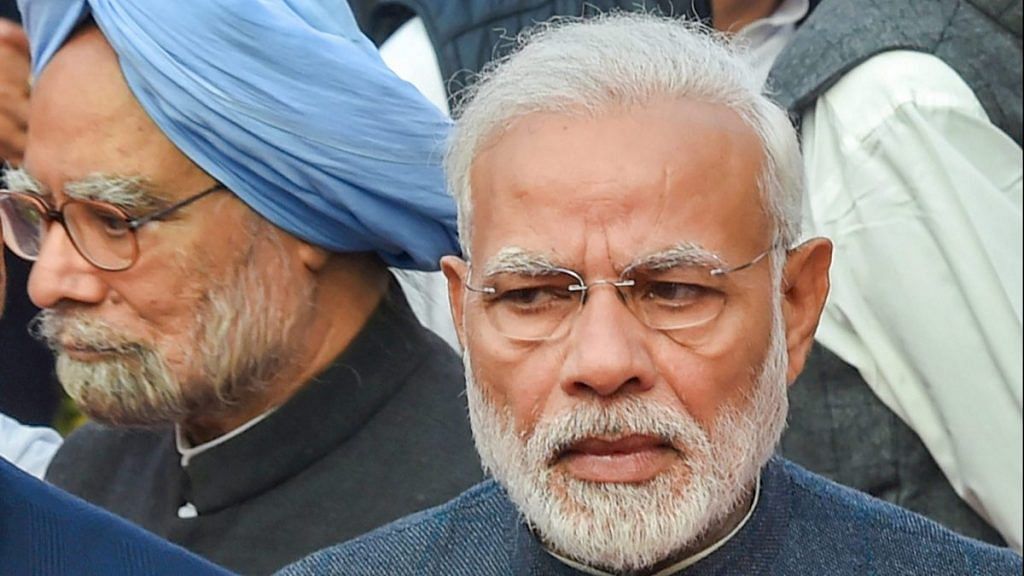The arrest of Congress leader P. Chidambaram Wednesday night shows the resolve of the Narendra Modi government to take its fight against corruption to the highest levels. The CBI seems to have put together a foolproof case against the former home and finance minister.
Chidambaram’s arrest also highlights some glaring differences between the UPA regime under the all-powerful Sonia Gandhi, who wielded extra-constitutional authority, and the NDA government headed by an extremely popular leader, who has successfully established himself beyond doubt as a crusader against corruption, running a ‘government with a difference’.
Charges of corruption were levelled against ministers and officials during the UPA tenure, but then-Prime Minister lacked the authority and resolve to take punitive or corrective actions, which prompted many to call him ‘Maun Mohan Singh’.
The current dispensation headed by Narendra Modi has made its point loud and clear – there will be zero tolerance on corruption and misuse of public money.
Also read: Chidambaram arrest shows a new normal. Under Modi-Shah, nobody is above the law
The question of public perception
The other big difference between the two governments is the public perception about them. During the UPA regime, the general perception was that corruption at top echelons was normal. This was a far cry from what the first Prime Minister of India, Jawaharlal Nehru, had supposedly said – those corrupt will be hanged from the nearest lamp post. Under successive Congress regimes, no one was ‘hanged’, not because there were no lamp posts, but because the political will was missing.
By initiating action against Chidambaram, Modi has sent a strong signal to not only outsiders, but also his own team: corruption at any level will not be tolerated. People of India now believe that the corrupt will not go scot-free under the Narendra Modi government.
Giving law agencies a free hand
Yet another point that shows the difference between the two governments is the manner in which the law-enforcing authorities have been given time and a free hand to prepare a water-tight case against Chidambaram. The former Union minister knows the law and how law enforcement agencies function. ‘Interim protection from arrest’ allowed him to drag the case endlessly.
Yet the agencies were on his trail, collecting evidence and keeping up the pressure on courts through their hard work. Finally, with the Delhi High Court rejecting Chidambaram’s anticipatory bail plea, his arrest became imminent.
Also read: Chidambaram arrest: Political drama or govt can’t risk it after Mallya, Nirav Modi flight?
Dismissal a setback
The law will take its own course, and it is now for the CBI to fight the case with all the expertise available at its command.
In the past, many such cases of corruption have been dismissed for want of strong evidence or on technical grounds. In the 2G spectrum case, for instance, the court last year acquitted former telecom minister A. Raja, DMK MP Kanimozhi and others and said the prosecution “miserably failed” to prove the charges.
Any such dismissal is a huge setback for the Narendra Modi government and its anti-corruption image. The opposition is already accusing the government of ‘political vendetta’.
But crying ‘vendetta politics’ will not take the Congress anywhere. The UPA government’s alleged acts of commission and omission, especially under Chidambaram as the finance minister, will come back to haunt them. As the case against him unfolds, more skeletons will tumble out of the Congress’ cupboard, revealing the loopholes in governance that encouraged corrupt practices.
The Modi government will earn more praise if it is able to fix these loopholes permanently.
The author is former editor of ‘Organiser’. Views are personal.
